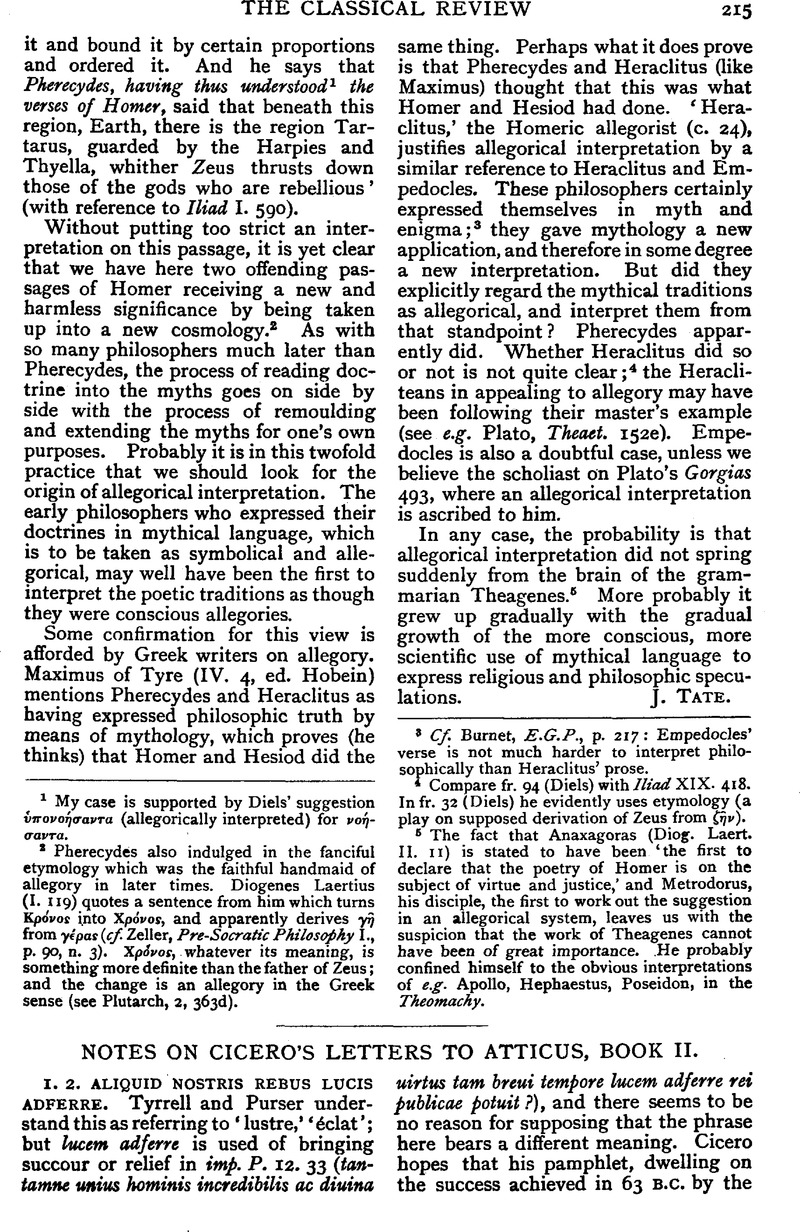Published online by Cambridge University Press: 27 October 2009

page 216 note 1 See Hall, F. W. in Cl. Quart. XVII. (1923), p. 102.Google Scholar
page 216 note 2 Plut. Caes. 13.
page 216 note 3 See § I. Cicero would send his answer by the slave ofAtticus; and even if the slave went on to Rome, as he probably did, with the other letters of his fasciculus, there would not be interval of many days.
page 216 note 4 Mommsen, Staatsr. 13, p. 585.
page 217 note 1 Hermathena, Vol. XIII., No. 31 (1905), p. 363.Google Scholar
page 217 note 2 Mommsen, , Staatsr. 23, p. 279.Google Scholar
page 217 note 3 Loc. cit., p. 371.
page 217 note 4 Domus in this sense, denoting the Roman citizen's place of local citizenship, is not, so far as I know, found in Ciceronian times. In C. Balb. 11. 28 domus occurs in connexion with citizenship other than, and incompatible with, Roman citizenship. The use in connexion with Roman citizenship is found in inscriptions, some of them belonging to the first century of our era; especially in the case of legionary soldiers and centurions is the name of the town to which man belonged, or wasascribed, frequently given, and sometimes with domo prefixed (see Mommsen, Staatsr. 3. 781). Domus does not occur in the locusclassicus for the two patriae, C. legg. 2. 2. 5; but it should be noted that the second patria there is considered as the place of birth (the domus in the technical sense would not necessarily be this), and that it is a question of affection, not of political rights.
page 217 note 5 The phrase would be technically correct if used in the sense of (Roman) citizenship belonging to the people of Antium.
page 218 note 1 Cf. Mommsen, , Staatsr. 3, pp. 231 f.Google Scholar